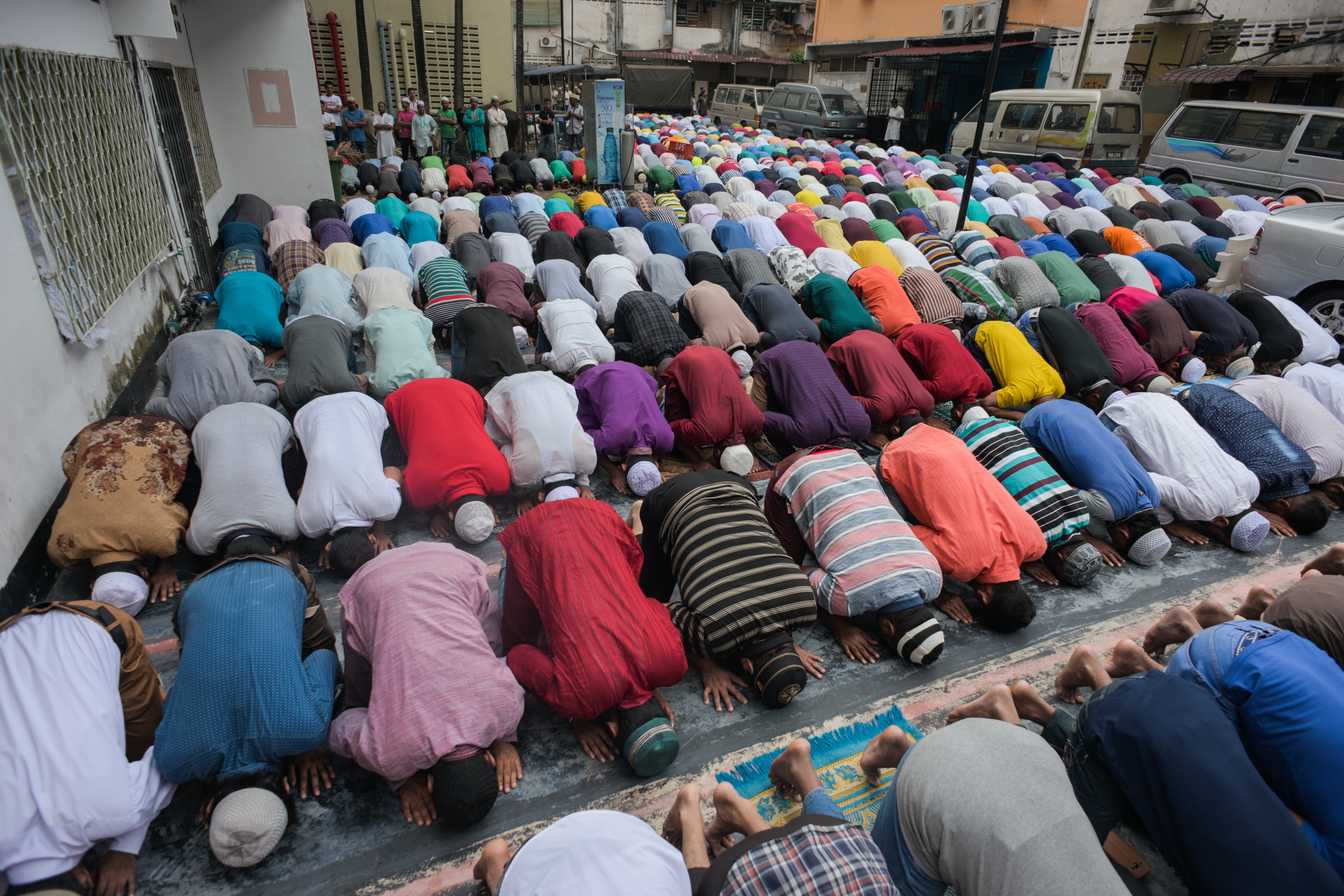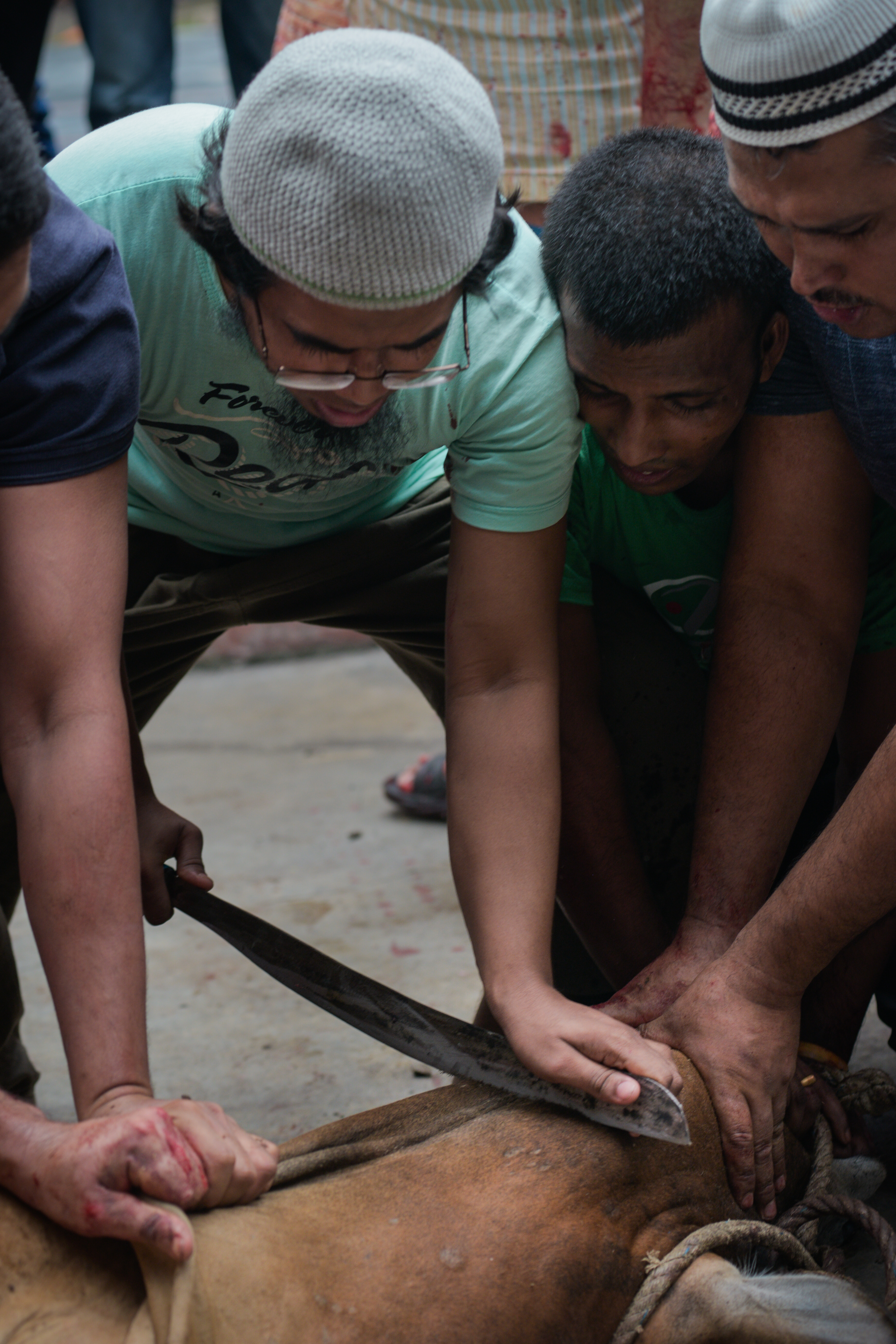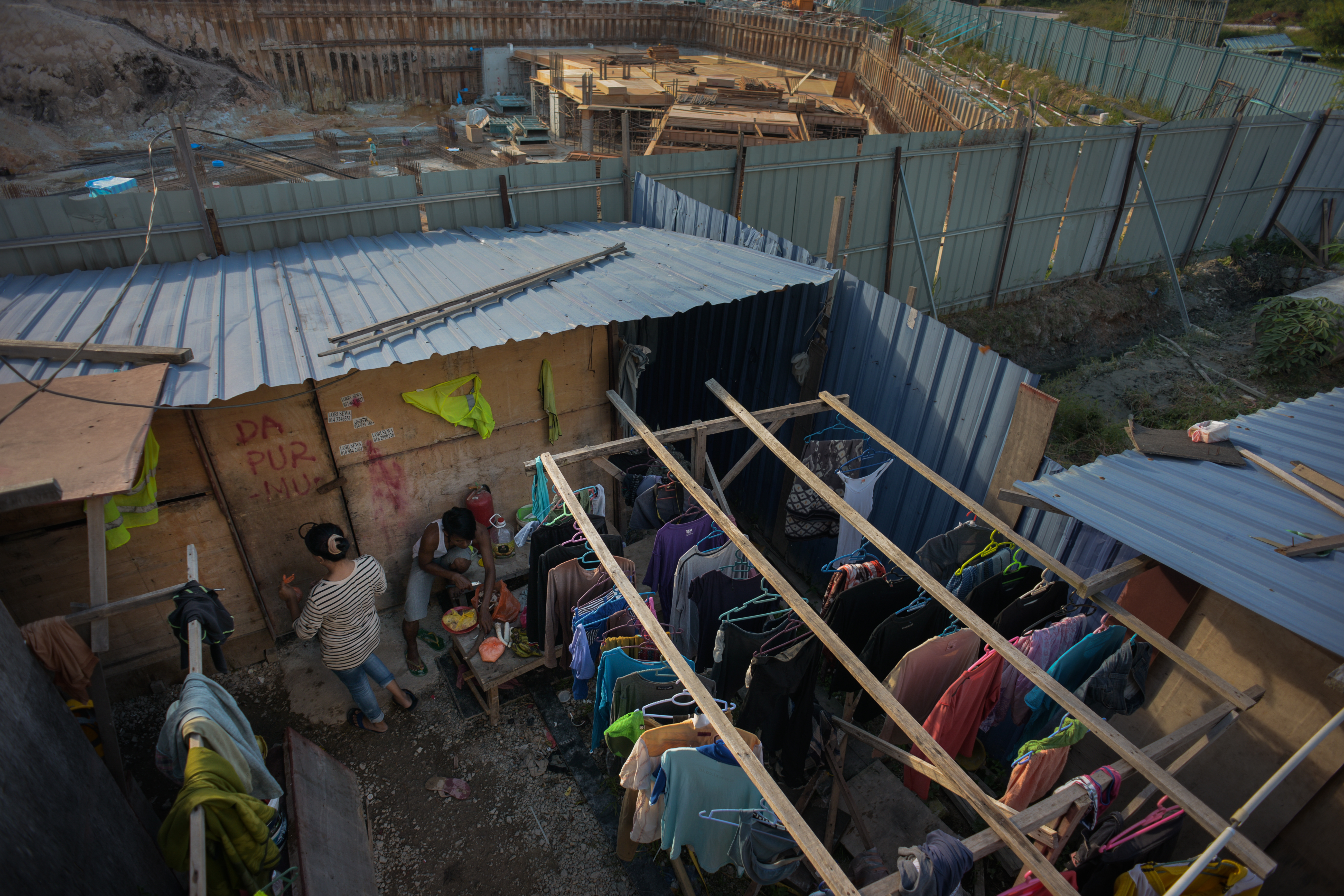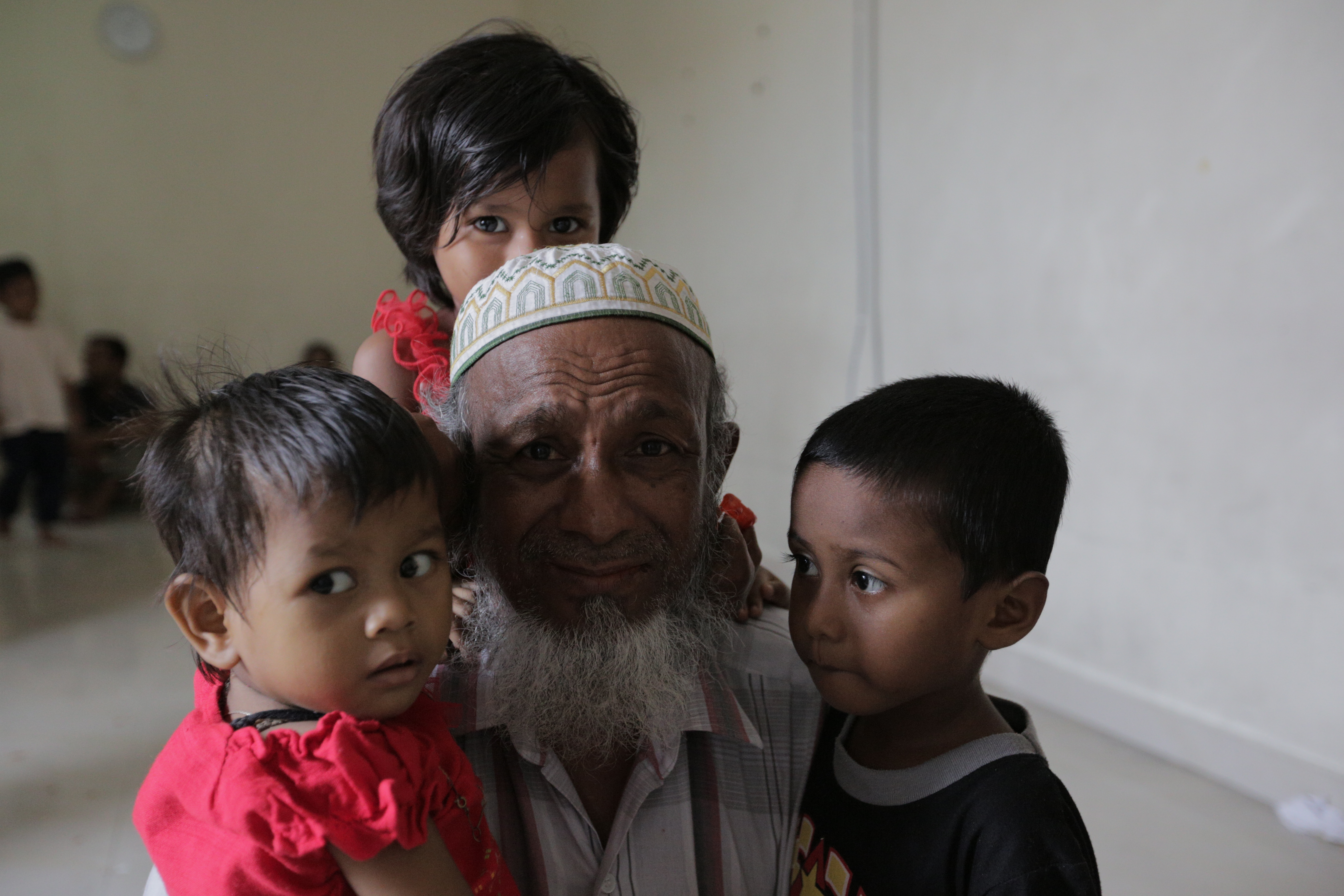EID AL-ADHA
Photo Essay: A look into Eid al-Adha with Malaysia's Bangladeshi community
In the heart of KL, just around the corner from it’s most famous stretch of bars, there’s a small surau run by Bangladeshi migrants. It’s a partitioned corner of a Bangladeshi restaurant, barely larger than a closet. The founder of the surau started it in the early 90s as a place for himself to pray. His colleagues started joining. Then his neighbours. There was only room for a dozen in the surau, so they started laying prayer mats outside. Today, the congregation occupies half of the street during Solat Isyak.
But during Eid al-Adha, the congregation swells. Migrants from all over KL gather here to perform Eid prayers and observe the ritual sacrifice of livestock.
By ELROI YEE
WARNING: This photo series contains GRAPHIC IMAGES of animal slaughter
Finest clothes
Muslims usually dress in their finest clothes for Eid al-Adha celebrations. For the Bangladeshi community in Malaysia, most of whom are hard labourers in construction sites and plantations, that can mean a simple, clean set of clothes. Here a group of them line up to perform ablution ahead of Eid al-Adha prayers.
Crowded
Dressed in his Eid best, a migrant worker observes the gathering crowd from his rented flat. According to residents here, 90% of these units are rented by Bangladeshi migrant workers, most of whom work in large-scale construction projects in the city. Each unit has three rooms, where workers live seven to a room, sleeping shoulder to shoulder.
National Pride
It was only a day after Merdeka, so the flags were still up – along the streets leading to the city centre, on billboards, and on the balconies of these low-cost flats just next to a community surau run by the Bangladeshi migrant community. Even in their cramped rooms, I spot small Malaysian flags pinned to the walls. Do you know about Merdeka Day? I ask one. “Yes, I know Merdeka Day. We respect and we celebrate Merdeka Day too.” Do you want to be Malaysian someday? There is a pause, and a stare into the distance. “No, I think I will stay Bangladeshi.”
The Sacrifice
After prayers, the sacrifice. The community pooled their resources and bought three bulls. Each bull costs between RM5,000 and RM7,000. Subduing the bull for the sacrifice is a team effort. One or two men keep the bull’s head – and horns – facing away from danger. Rope is tied to its legs and looped over its back. When the crowd pulls, the bull falls and everyone piles on top of it to keep it down. This bull is particularly strong. It takes them four tries.
Cooked to Perfection
The pot of beef curry is kept simmering for over two hours, from seven in the evening all the way through Maghrib prayers. This community surau run by Bangladeshi migrants is barely larger than a closet, but around a hundred believers gather here regularly to pray, the congregation so large it often spills over onto the streets.
Waste Not
They insisted we put our cameras away and sit with them for the meal. The experience – a steaming plate of rice and beef curry eaten in the slightest of drizzle, with the warmth of new friends – was transcendent. We are told not to waste the food. Every last drop of curry is gathered up with the back of your hand and licked clean.
Back Home
A migrant worker makes his nightly phone call to his family in Bangladesh. Though he stays just upstairs of the surau, he and his housemates preferred to cook their own meal. “We already prepared the food for today, so better not to waste it,” one of them says. Is Eid al-Adha different in Bangladesh, I ask another. “It’s the same. Maybe there are more people celebrating back home, but otherwise it’s the same.”




















Tell us what you think!